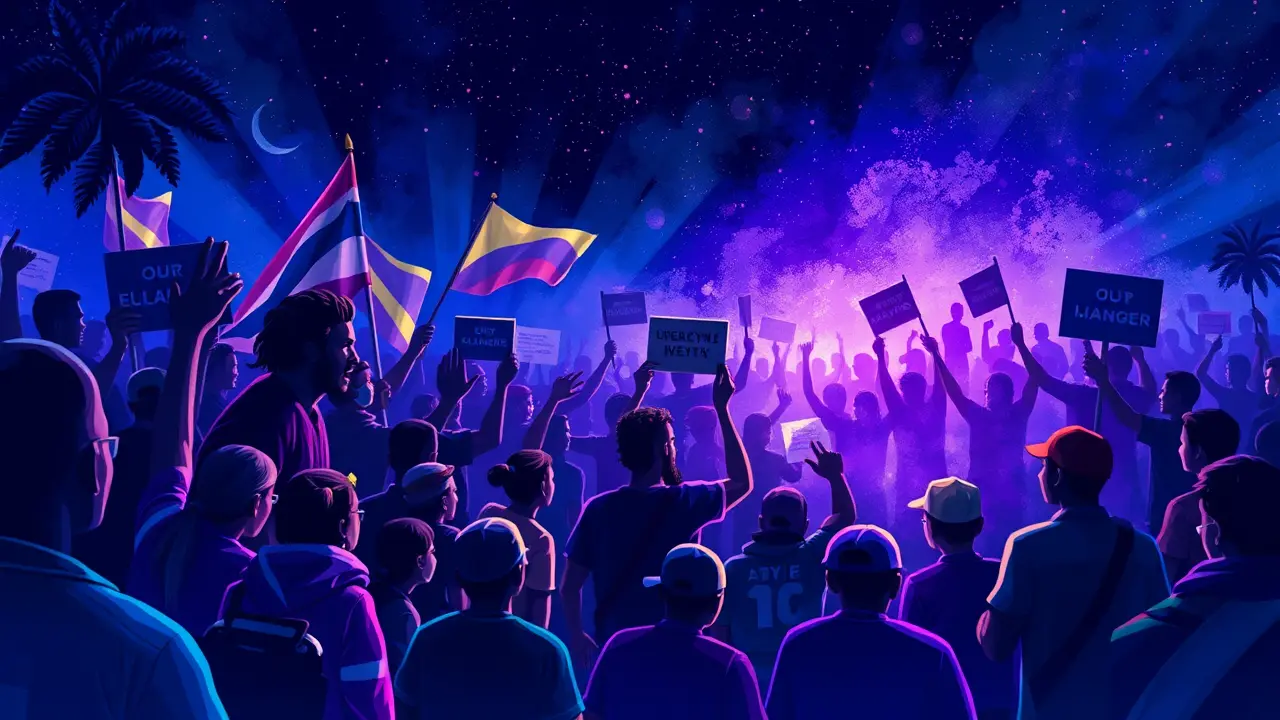
Politicsprotests & movementsClimate Activism
Indigenous protesters clash with security at UN climate summit.
RA
Rachel Adams
6 hours ago7 min read3 comments
The pristine theoretical bubble of international climate diplomacy was violently punctured on Tuesday as dozens of Indigenous protesters, their voices raw with a generational anguish that policy papers cannot capture, forced their way into the Cop30 summit venue in Belem, Brazil. This was not a scheduled side event; it was a visceral confrontation, a clash between security guards in sterile uniforms and the living, breathing guardians of the Amazon itself.The scene was one of chaotic, symbolic power: as thousands of delegates from around the world debated abstract carbon targets and financial mechanisms inside the secured UN compound, the very people whose ancestral lands are the front line of the climate crisis shouted their way to the doors, demanding tangible action and an end to the deforestation that threatens their existence and the planet's lungs. They carried flags emblazoned with unequivocal demands for land rights and signs with messages like 'Our land is not for sale,' a stark rebuttal to the commodification of nature often discussed in the air-conditioned halls.This protest is not an isolated incident but a crescendo in a long history of Indigenous resistance. For centuries, these communities have been the most effective stewards of biodiversity, their traditional knowledge forming a bulwark against ecological collapse.Scientific studies, including those from the IPCC, have consistently shown that Indigenous-managed forests have lower deforestation rates and higher carbon storage. Yet, they are systematically marginalized from the decision-making tables where their fate is decided.The choice of Belem as the host city, a gateway to the Amazon, was meant to symbolize a commitment to this critical biome, but the protesters exposed the grim irony of their exclusion. The tension in the air was palpable, a mixture of righteous anger and desperate hope.Each shove against a security barricade was a challenge to a system that offers platitudes while permitting continued resource extraction. The Brazilian government, under President Silva, has made ambitious pledges to curb deforestation, but on the ground, the reality is a complex and often violent struggle against illegal loggers, miners, and agribusiness encroachment.The protesters in Belem were embodying that struggle, bringing the messy, dangerous truth of the Amazon to the diplomats' doorstep. The consequences of ignoring this uprising are profound.It risks deepening the trust deficit between Global North nations, historically the largest emitters, and the Global South communities bearing the brunt of the impacts. It calls into question the very legitimacy of COP processes if they cannot authentically incorporate the voices of those with the most to lose.This clash is a warning shot. The future of climate action cannot be written in technical jargon alone; it must be forged in partnership with the Indigenous peoples who hold the key to preserving the world's most vital ecosystems. The alternative is not just failed policy, but a continued unraveling of the biological and cultural fabric of our planet.
#featured
#climate protest
#UN summit
#Indigenous rights
#forest protection
#Brazil
#security clash
Stay Informed. Act Smarter.
Get weekly highlights, major headlines, and expert insights — then put your knowledge to work in our live prediction markets.
© 2025 Outpoll Service LTD. All rights reserved.